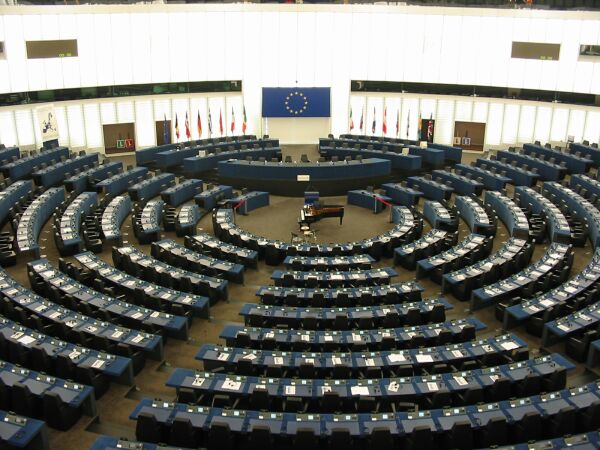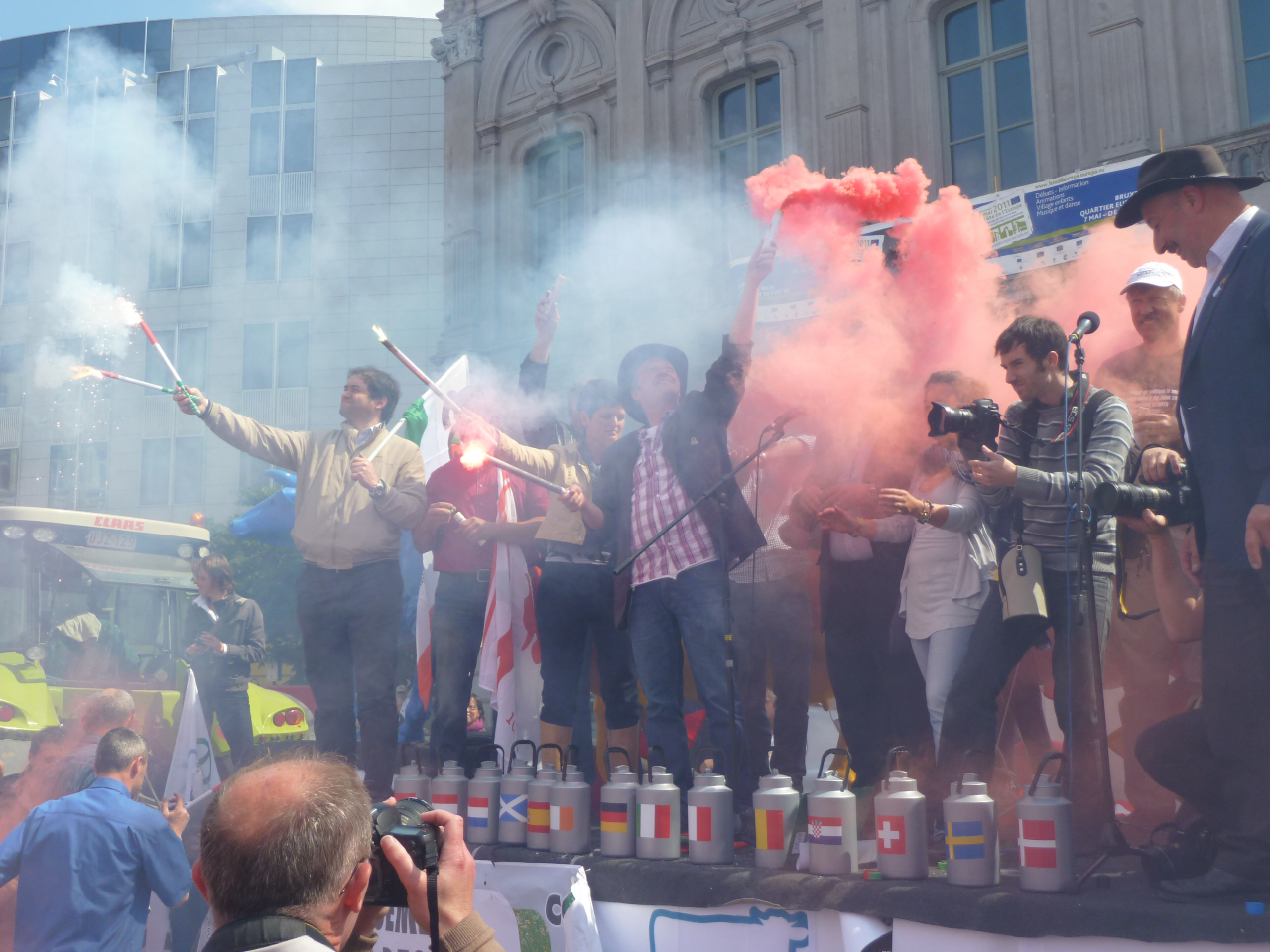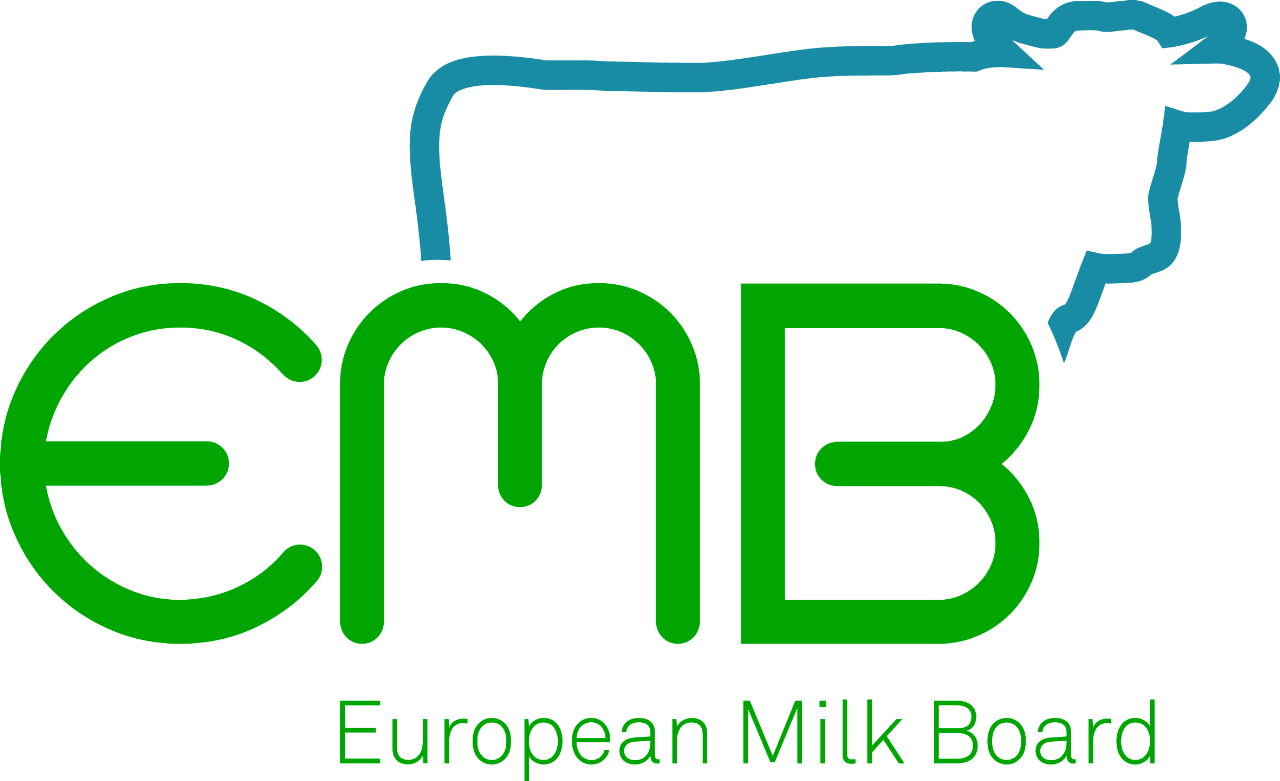EMB Newsletter July 2012
Newsletter as PDF
Contact
European Milk Board
Bahnhofstr. 31
D-59065 Hamm
Phone: 0049/2381/4360495
Fax: 0049/2381/4361153
E-Mail: office@europeanmilkboard.org
Website: http://www.europeanmilkboard.org
Newsletter as PDF
Contact
EMB - European Milk Board asbl
Rue de la Loi 155
B-1040 Bruxelles
Phone: +32 - 2808 - 1935
Fax: +32 - 2808 - 8265
Dear Dairy Farmers and Interested Parties,
The crisis in the European milk market is back. That is the situation we are experiencing first hand and which is evident from a glance at neighbouring farms. How long the crisis will last and when prices will bottom out is anyone’s guess.
However, the report recently presented to the European Parliament by MEP Michel Dantin on the future organisation of European agriculture, and the reactions of the MEPs, hold out some hope. The report contains some important proposals such as the introduction of a crisis mechanism with a cut in production or a European instrument for monitoring food prices. This is proof that our huge efforts in the EMB since the last crisis in 2008 and 2009 have been worth it. What we have to do now is stay on the ball and join our forces.
The EMB’s opinion is as clear as ever: the European Commission’s soft landing by 2015 means a crash landing in just three years. There is an urgent need for action above the intervention level of 21.5 cents. That can be put into practice only with a cut in production, which is best achieved by a voluntary suspension of milk supply. The good initiatives in Michel Dantin’s report must therefore be grasped and further developed in the next few weeks and months in conjunction with the policy-makers, constructively but also resolutely.
Our demonstration on 10 July outside the European Parliament in Brussels is a first step in this direction and is intended to pile on the pressure on the decision-makers in the EU. So I call on you to actively join in and demonstrate alongside dairy farmers from every member state outside the European Parliament on 10 July. It is up to us to take the opportunities to improve the situation and to make sure our voice is heard in Brussels.
Romuald Schaber (President of the EMB)
Agricultural market organisation: major decisions soon to be taken in Brussels
The milk crisis is back again and milk producers all over Europe are suffering from it. With this scenario a further step in the reform process on the future organisation of the EU agricultural market comes at the right moment.
In the course of the next few months the European Parliament will be adopting its own proposal on the Common Agricultural Policy. They are working at full stretch on this and the dairy farmers should be constructively involved in this process. Advantage must be taken of the opportunities that present themselves here for producers with regard to improving the milk market situation. The new market organisation is part of the present reform of the CAP on a European level.
The milk producers’ demo outside the European Parliament
The European Milk Board (EMB) is calling on its members to demonstrate outside the European Parliament in Brussels in the morning of 10 July 2012. Farm-gate prices for milk are plummeting throughout Europe, and no dairy farmer can cope with the crisis on his/her own. That is why the milk producers in Europe should take the reform of the Common Agricultural Policy (CAP) in the European Parliament as an opportunity to gather in Brussels and show the politicians that the situation cannot go on like this. This is the EMB’s call for a major demonstration:
Shift in direction of the French Dairy Farmers’ Association
The FNPL, the biggest organisation of milk producers in France, wants to champion a Common European Agricultural Policy (CAP) to counter the milk crisis, says its new President Thierry Roquefeuil. This shift in direction surprises the French EMB member organisation APLI and the Office du Lait, as previously these two organisations were alone in advocating this position on both a French and European level.
For instance, in future the FNPL wishes to acknowledge the importance of the milk crisis in 2009, which hit all milk producers in Europe equally hard. Moreover, just like the APLI the FNPL is calling for the future of milk production to be secured throughout France, and not just in individual regions.
The dairy industry in Latvia: the family’s broad back
It is possible that the warm afternoon sun helps give Signe Seile’s farm near the Latvian capital city of Riga an almost idyllic appearance: flowers everywhere, a tabby cat with white paws stretching in the green grass of spring, ducklings and chicks crowding around their feathered mothers in small pens ….
But the situation of dairy farmer Seile, whose 27 cows produce 170 000 – 190 000 litres of milk a year, is far from ideal. The blonde farmer describes the situation on the farm as follows: “In the last few years work has piled up, but our income has kept on decreasing.
Uncertainty among Russian dairy farmers about Russia’s accession to the WTO
The members of the Russian milk producer organisation Souzmoloko feel that the rise in imports of dairy products after Russia’s accession to the WTO could mean a real risk for the sector. They are worried, especially about the Russian retailers. They fear that the retailers will import more and more cheap milk powder and palm oil products from Europe if the Russian markets are opened up further in the future. They say the Russian retailers are entering into fewer contracts with milk producers and waiting until such time as there are unrestricted imports.
EMB Calendar
Please find below some of the most important events in July 2012:
09.7.: Special meeting of the EMB Board in Brussels
09.7.: Advisory Group Milk in Brussels
10.7.: Demonstration of milk producers in front of the European Parliament in Brussels
13.7.: Conference on the future of the CAP in Brussels
31.7.: Meeting of the EMB Board in Brussels
Full Texts
Agricultural market organisation: major decisions soon to be taken in Brussels

The milk crisis is back again and milk producers all over Europe are suffering from it. With this scenario a further step in the reform process on the future organisation of the EU agricultural market comes at the right moment.
In the course of the next few months the European Parliament will be adopting its own proposal on the Common Agricultural Policy. They are working at full stretch on this and the dairy farmers should be constructively involved in this process. Advantage must be taken of the opportunities that present themselves here for producers with regard to improving the milk market situation. The new market organisation is part of the present reform of the CAP on a European level.
The key figures currently show that milk prices are plummeting – highly redolent of 2009, when the market collapsed. In many EU member states farm-gate prices have already slid under the 30-cent mark, and the trend is downwards. For instance, since November 2011 milk prices have fallen in Belgium on average from just over 34 cents to 26 cents, in Germany from 36.90 cents to 29.80 cents and in France from 33.13 cents to 28.50 cents in May 2012.
A major opportunity to shape the market in a positive way for the milk producers is provided by the overhaul of the organisation of the agricultural market by the EU institutions in Brussels. After the European Commission put forward a proposal last October for a reform of the organisation of the market, on 18 June this year a report on it was presented to the European Parliament’s Agriculture Committee. In it the French MEP Michel Dantin suggests improving the Commission’s proposal as follows:
Altering the safety net that comprises intervention and stockpiling measures
Pressing ahead with the strengthening of producer organisations
Applying a new crisis mechanism to the agricultural markets
Setting up a pan-EU body to monitor food prices
Creating exemptions under competition law.
Although the EMB has to subject Michel Dantin’s proposals to closer scrutiny, at first glance they do offer some valuable points of contact with the EMB’s demands such as a voluntary suspension of milk supply or a monitoring agency for the dairy market. The MEPs on the European Parliament’s Agriculture Committee now have until 10 July to propose further amendments. After the Brussels summer break there are to be further discussions on the organisation of the market in September and October, with the Agriculture Committee expected to decide on it in late November.
This timetable gives the EMB’s dairy farmers the chance to pool all their resources and jointly lobby the members of the European Parliament to overhaul the milk market rules. We aim to give this lobbying a symbolic kick-off with our demonstration outside the European Parliament in Brussels on 10 July.
Christian Schnier (EMB)





